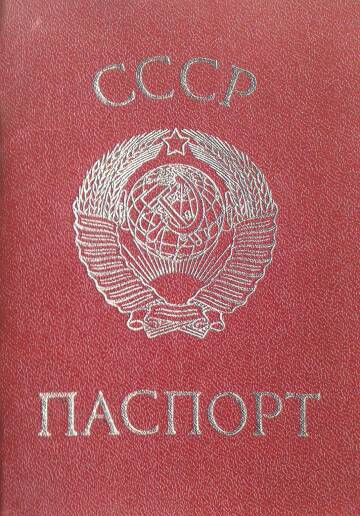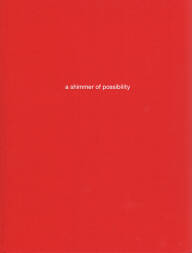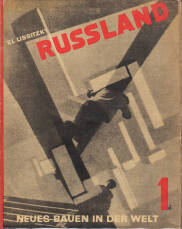Soviet Passport (signed - last copy)
by Tatiana Fiodorova
Publisher: self-published
21 pages
Pictures: 21 photo cards
Year: 2015
Price: 60 €
Comments: 13 x 9 cm, photo cards with short interviews with cover, limited edition of 60 copies, copy of soviet passport
More than 20 years have passed since the collapse of the Soviet Union, yet there are people in Moldova who still use passports issues by the already nonexisting Union of Soviet Socialist Republics.
This is also true for the unrecognized republic of Transnistria. Currently in Moldova there are about 200 thousand citizen owning Soviet passports – more than 150 thousands of which live on the right bank of river Dniestr, and over 20 thousand – on the left.
Until March 2014, there was no law forbidding the use of these documents. However now, the government of Moldova approved a draft law that talks about exchanging soviet passports until September 1, 2014. Citizens that do not have a valid Moldovan passport won’t be able to get their pensions and benefits, nor will they be allowed to vote. The exchange of soviet passports is free and is part of the state policy of providing the citizen of Moldova with state IDs.
In Transnistria there is no such law. Many people who live there use these Soviet passports and do not wish to part with them. Soviet passports that belong to pensioners and have a special insert proving Transnistrian citizenship, are valid indefinitely.
As the country remains unrecognized, citizens of Transnistria are in no rush to exchange these passports. Many people obtain citizenships of other states, using the passport of the citizen of USSR. Ownership of a Soviet passport allows the citizen of Transnistria to get the citizenship of Russia, Ukraine, Belorussia, Moldova or any other state.
The photo book “USSR PASSPORT” is consists of two parts: copy of a Soviet passport, photo portraits of people with Soviet passports, also included are Soviet objects, photographs and cherished children’s toys, found in these people’s apartments. This is the last opportunity to capture the people of the bygone Soviet era, together with the document of a long gone state. The book also includes short but insightful comments of these people about the Soviet era.
About the comments, It is quite difficult for these people to part with their Soviet passports, for them, this document is a memory of the past, of a utopian state, where they have spent their youth and lives. Many of them still do not accept the loss of that country and try, with all their might, to hold on to a piece of the Soviet Union. This makes me ask a question, if there are still people holding Soviet passports, then, the country of USSR also still exists, maybe not in reality, but in some people’s mentality.
This project is also somewhat personal. Attached there is a copy of my father’s passport, who has passed away suddenly in 1982, when I was only 6 years old. A lot of time has passed, and this passport was for me a memory about the Soviet times and my father. In 2011, circumstances made me apply for Romanian citizenship, and I had to provide documents proving my father’s death. I had to go through many offices and courts until I was told that he is not listed as dead. I was told that it is easier to get a certificate of birth, rather than death. As absurd as it may seem, on paper it looks like my father is still alive, and the Soviet Union continues to live in these passports and people.
The theme of the Soviet and the Soviet legacy to become relevant today especially after the events in Ukraine and in Crimea.
more books tagged »Moldova« | >> see all
-
Bertien van Manen in Moldova (signed)
by Bertien van Manen
sold out -
Let's sit down before we go (signed- last copy)
by Bertien van Manen
sold out -
Let's sit down before we go (last copy)
by Bertien van Manen
Euro 320 -
Not Natasha
by Dana Popa
sold out
more books tagged »soviet« | >> see all
-
Soviet Bus Stops
by Christopher Herwig
sold out -
The Soviet Photobook 1920-1941
by Mikhail Karasik
sold out -
Inshallah
by Dima Gavrysh
Euro 46 -
Venten på i går - Auf gestern warten (signed - last copy)
by Krass Clement
Euro 250 -
People of Lithuania (signed)
by Antanas Sutkus
Euro 150 -
11.41 (signed)
by Michal Luczak
Euro 38
more books tagged »post-Soviet« | >> see all
-
Lost Territories: Wordbook
by Sputnik Photos
sold out -
Mühit (signed - second edition - last copy)
by Ilkin Huseynov
Euro 52 -
Soviet Bus Stops Volume II
by Christopher Herwig
sold out -
Peter
by Carma Casulá
Euro 44 -
At the Border (last copy)
by Sputnik Photos
Euro 125 -
Street Encounters (last copy)
by Evgeny Vasin
Euro 95
Random selection from the Virtual bookshelf josefchladek.com
Soviet Passport (signed - last copy)
by Tatiana Fiodorova
Publisher: self-published
21 pages
Pictures: 21 photo cards
Year: 2015
Price: 60 €
Comments: 13 x 9 cm, photo cards with short interviews with cover, limited edition of 60 copies, copy of soviet passport
More than 20 years have passed since the collapse of the Soviet Union, yet there are people in Moldova who still use passports issues by the already nonexisting Union of Soviet Socialist Republics.
This is also true for the unrecognized republic of Transnistria. Currently in Moldova there are about 200 thousand citizen owning Soviet passports – more than 150 thousands of which live on the right bank of river Dniestr, and over 20 thousand – on the left.
Until March 2014, there was no law forbidding the use of these documents. However now, the government of Moldova approved a draft law that talks about exchanging soviet passports until September 1, 2014. Citizens that do not have a valid Moldovan passport won’t be able to get their pensions and benefits, nor will they be allowed to vote. The exchange of soviet passports is free and is part of the state policy of providing the citizen of Moldova with state IDs.
In Transnistria there is no such law. Many people who live there use these Soviet passports and do not wish to part with them. Soviet passports that belong to pensioners and have a special insert proving Transnistrian citizenship, are valid indefinitely.
As the country remains unrecognized, citizens of Transnistria are in no rush to exchange these passports. Many people obtain citizenships of other states, using the passport of the citizen of USSR. Ownership of a Soviet passport allows the citizen of Transnistria to get the citizenship of Russia, Ukraine, Belorussia, Moldova or any other state.
The photo book “USSR PASSPORT” is consists of two parts: copy of a Soviet passport, photo portraits of people with Soviet passports, also included are Soviet objects, photographs and cherished children’s toys, found in these people’s apartments. This is the last opportunity to capture the people of the bygone Soviet era, together with the document of a long gone state. The book also includes short but insightful comments of these people about the Soviet era.
About the comments, It is quite difficult for these people to part with their Soviet passports, for them, this document is a memory of the past, of a utopian state, where they have spent their youth and lives. Many of them still do not accept the loss of that country and try, with all their might, to hold on to a piece of the Soviet Union. This makes me ask a question, if there are still people holding Soviet passports, then, the country of USSR also still exists, maybe not in reality, but in some people’s mentality.
This project is also somewhat personal. Attached there is a copy of my father’s passport, who has passed away suddenly in 1982, when I was only 6 years old. A lot of time has passed, and this passport was for me a memory about the Soviet times and my father. In 2011, circumstances made me apply for Romanian citizenship, and I had to provide documents proving my father’s death. I had to go through many offices and courts until I was told that he is not listed as dead. I was told that it is easier to get a certificate of birth, rather than death. As absurd as it may seem, on paper it looks like my father is still alive, and the Soviet Union continues to live in these passports and people.
The theme of the Soviet and the Soviet legacy to become relevant today especially after the events in Ukraine and in Crimea.
more books tagged »Moldova« | >> see all
-
Bertien van Manen in Moldova (signed)
by Bertien van Manen
sold out -
Let's sit down before we go (signed- last copy)
by Bertien van Manen
sold out -
Let's sit down before we go (last copy)
by Bertien van Manen
Euro 320 -
Not Natasha
by Dana Popa
sold out
more books tagged »soviet« | >> see all
-
Soviet Bus Stops
by Christopher Herwig
sold out -
The Soviet Photobook 1920-1941
by Mikhail Karasik
sold out -
Inshallah
by Dima Gavrysh
Euro 46 -
Venten på i går - Auf gestern warten (signed - last copy)
by Krass Clement
Euro 250 -
People of Lithuania (signed)
by Antanas Sutkus
Euro 150 -
11.41 (signed)
by Michal Luczak
Euro 38
more books tagged »post-Soviet« | >> see all
-
Lost Territories: Wordbook
by Sputnik Photos
sold out -
Mühit (signed - second edition - last copy)
by Ilkin Huseynov
Euro 52 -
Soviet Bus Stops Volume II
by Christopher Herwig
sold out -
Peter
by Carma Casulá
Euro 44 -
At the Border (last copy)
by Sputnik Photos
Euro 125 -
Street Encounters (last copy)
by Evgeny Vasin
Euro 95
Random selection from the Virtual bookshelf josefchladek.com
Soviet Passport (signed - last copy)
by Tatiana Fiodorova
Publisher: self-published
21 pages
Pictures: 21 photo cards
Year: 2015
Price: 60 €
Comments: 13 x 9 cm, photo cards with short interviews with cover, limited edition of 60 copies, copy of soviet passport
More than 20 years have passed since the collapse of the Soviet Union, yet there are people in Moldova who still use passports issues by the already nonexisting Union of Soviet Socialist Republics.
This is also true for the unrecognized republic of Transnistria. Currently in Moldova there are about 200 thousand citizen owning Soviet passports – more than 150 thousands of which live on the right bank of river Dniestr, and over 20 thousand – on the left.
Until March 2014, there was no law forbidding the use of these documents. However now, the government of Moldova approved a draft law that talks about exchanging soviet passports until September 1, 2014. Citizens that do not have a valid Moldovan passport won’t be able to get their pensions and benefits, nor will they be allowed to vote. The exchange of soviet passports is free and is part of the state policy of providing the citizen of Moldova with state IDs.
In Transnistria there is no such law. Many people who live there use these Soviet passports and do not wish to part with them. Soviet passports that belong to pensioners and have a special insert proving Transnistrian citizenship, are valid indefinitely.
As the country remains unrecognized, citizens of Transnistria are in no rush to exchange these passports. Many people obtain citizenships of other states, using the passport of the citizen of USSR. Ownership of a Soviet passport allows the citizen of Transnistria to get the citizenship of Russia, Ukraine, Belorussia, Moldova or any other state.
The photo book “USSR PASSPORT” is consists of two parts: copy of a Soviet passport, photo portraits of people with Soviet passports, also included are Soviet objects, photographs and cherished children’s toys, found in these people’s apartments. This is the last opportunity to capture the people of the bygone Soviet era, together with the document of a long gone state. The book also includes short but insightful comments of these people about the Soviet era.
About the comments, It is quite difficult for these people to part with their Soviet passports, for them, this document is a memory of the past, of a utopian state, where they have spent their youth and lives. Many of them still do not accept the loss of that country and try, with all their might, to hold on to a piece of the Soviet Union. This makes me ask a question, if there are still people holding Soviet passports, then, the country of USSR also still exists, maybe not in reality, but in some people’s mentality.
This project is also somewhat personal. Attached there is a copy of my father’s passport, who has passed away suddenly in 1982, when I was only 6 years old. A lot of time has passed, and this passport was for me a memory about the Soviet times and my father. In 2011, circumstances made me apply for Romanian citizenship, and I had to provide documents proving my father’s death. I had to go through many offices and courts until I was told that he is not listed as dead. I was told that it is easier to get a certificate of birth, rather than death. As absurd as it may seem, on paper it looks like my father is still alive, and the Soviet Union continues to live in these passports and people.
The theme of the Soviet and the Soviet legacy to become relevant today especially after the events in Ukraine and in Crimea.
more books tagged »Moldova« | >> see all
-
Bertien van Manen in Moldova (signed)
by Bertien van Manen
sold out -
Let's sit down before we go (signed- last copy)
by Bertien van Manen
sold out -
Let's sit down before we go (last copy)
by Bertien van Manen
Euro 320 -
Not Natasha
by Dana Popa
sold out
more books tagged »soviet« | >> see all
-
Soviet Bus Stops
by Christopher Herwig
sold out -
The Soviet Photobook 1920-1941
by Mikhail Karasik
sold out -
Inshallah
by Dima Gavrysh
Euro 46 -
Venten på i går - Auf gestern warten (signed - last copy)
by Krass Clement
Euro 250 -
People of Lithuania (signed)
by Antanas Sutkus
Euro 150 -
11.41 (signed)
by Michal Luczak
Euro 38
more books tagged »post-Soviet« | >> see all
-
Lost Territories: Wordbook
by Sputnik Photos
sold out -
Mühit (signed - second edition - last copy)
by Ilkin Huseynov
Euro 52 -
Soviet Bus Stops Volume II
by Christopher Herwig
sold out -
Peter
by Carma Casulá
Euro 44 -
At the Border (last copy)
by Sputnik Photos
Euro 125 -
Street Encounters (last copy)
by Evgeny Vasin
Euro 95
Random selection from the Virtual bookshelf josefchladek.com



























;jpg?c=f09c595d95fe042449b556fbbf2b2c79)











_(深瀬_昌久_遊戯_映像の現代4);jpg?c=fcb3804a689cc8a82868e2a5b48119cf)
;jpg?c=8c505814bb215507267c04b84d48d520)
